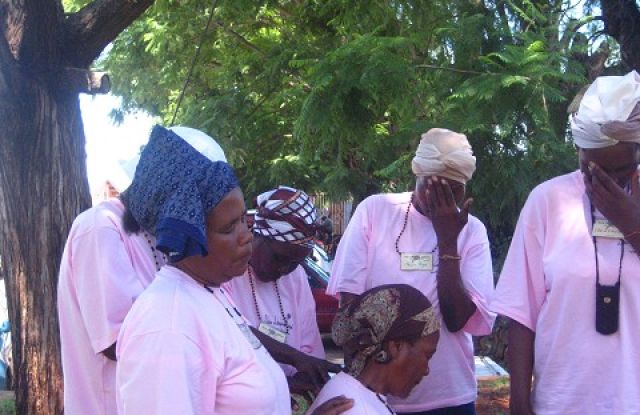

5 Reasons Why You May Need to Break Off a Relationship
Loyalty is good. I’m a loyal guy. But I’ve found that my loyalty can also be a weakness. Sometimes the most loyal thing I can do is to break off a dysfunctional relationship.
Sometimes our loyalty is covering up brokenness in another person. They don’t need loyalty; what they need is someone to call them on their dysfunction.
But our loyalty keeps us from speaking the truth and keeps us from holding them accountable. And if you were to dig around, you’d see that the reason we are so loyal is usually rooted in some broken pattern from childhood.
Henry Cloud wrote a book, Necessary Endings. In it he lists five ways in which we may be excusing bad behavior and need to make a change.
1. High pain threshold
Maybe your childhood was hard. For example, if you lived with an alcoholic parent and especially if you suffered abuse, you had to find ways to cope. Pain was normal, so you learned to live with it.
But if you numb pain too long, your coping mechanisms get in the way of living a normal life.
Pain is not bad – it keeps us from injuring ourselves. If you’ve lived with pain that is abnormally high, your habit of numbing yourself has kept you from experiencing life. Live inside a narrow emotional bandwidth and you’ll not connect with others.
2. Covering for others
If you’ve lived with an alcoholic parent, it’s an embarrassment. You want to hide their dysfunction so that you don’t have to deal with the pain. So you cover up. You make excuses and even take responsibility for the mess they’re making.
Taking too much responsibility for others can permanently scar your life. For example, it’s common for relatives of suicide victims to assume that they should have done something about it. The thought “if only I had….” plays on a permanent loop in their minds. The truth is, they need to not take responsibility for someone’s terrible mistake.
3. “If I quit, I’ve failed”
Some of you were in survival mode for years in your family. You were bravely trying to surf the high waves of severe family pain. You swore that you’d never quit and you tenaciously hung on. Maybe dad was absent, but you soldiered on anyway.
God bless you, the pain was horrific at times. However bad it got, you just gritted your teeth and tightened your grip. And now that habit is a part of your character, for both better and worse.
4. Misplaced loyalty
It’s one thing to be loyal to friends, it’s another thing to let them abuse your trust. If you’re in a situation where a friend has been manipulative, it may be time to draw a line. What have you promised them and what do you really owe them?
You may be blind to situations that have gone on too long and need more accountability than you’re providing. Your loyalty needs to be to the best version of your friends and family – to their health. True loyalty will fight against dysfunction.
5. Codependency
Instead of growing in maturity, you may be staying in a place where your weakness is enmeshed with the weakness of your friend. Instead of encouraging your friend to grow, you actually help keep them in a place where they are stuck. Why? Because in some way that makes you feel needed.
Change is hard and committing to growth is hard. Much easier to stay in your broken place and hang out with people who will validate your broken behavior, not seeing that your codependency is not healthy for either of you.
* * * *
So loyalty taken too far can keep us from growing. But loyalty is in short supply these days. So many people live transactionally, often in lonely and isolated places. What about situations where your loyalty is a positive thing? How do we discern the difference between this kind of loyalty and dysfunction?
Cloud makes a distinction – yes, we should help those who can’t help themselves. But we need to recognize that every adult is responsible for herself or himself.
When you find yourself covering for someone else’s responsibilities, Cloud diagnoses your problem and tells you what to do next: “Not only are you stuck with a delayed ending, but you are probably harming that person.”
The best thing to do is to break off the relationship. This doesn’t mean saying goodbye forever, but it does mean establishing boundaries and moving toward the freedom you were made for.



Seth this vital topic doesn’t lend itself to sound bites nor truncated case studies. You are a deep thinker and loyal friend. One thing we learn in Twelve Step programs is that only a person with the help if their higher power can do their inventory. People eager to keep score cards on others aren’t following Christ. You model grace well. And often our family is the greatest boundary we need to set and keep.
Sad, but true, Butch. Boundaries are so important precisely because so many of us grew up in dysfunctional homes.
In some cultures, the idea of “breaking off a relationship” with an elder or a leader is unthinkable; even if one is being abused. Finding and living within the heathy boundaries of loyalty and dysfunction could be hard for protégés.
As I think of the relationship between King Saul and David, I’m wondering if there’s something like a “positive dysfunctional relationship”?
That’s a good question, Uche. I’d say only if there are boundaries in place. Saul and David didn’t end well…
This is so so good. Good boundaries calls everyone to a higher standard. Love it.
Seth this is perhaps one of the best things I have ever read on living with the choices and sickness of an addict. The on going pain and drama is profound as long as you believe there’s something you can or should do to change them. The pain and disappointment only grows when you believe you can. But you can’t. But you can change you. AND that is perhaps the most frighting of all. You have to come to terms with dashed dreams and true grief that life as you once hoped it to be for them or yourself is no longer real. Grief feels like fear and fear paralyzes us. The spinning of an addict destroys everything. And I mean everything. You have to make a choice to get out of the destruction and walk another way. AND that takes profound courage. It takes God’s grace. These are the real heroes in my book. People who have survived the destruction and still choose to believe there can be a better way. These are the brave ones. Who walk into their pain and stand and believe there is peace to be lived. But. It. Takes. Everything.
Thanks, Tammy. Coming to terms with dashed dreams is such a hard thing to do.
If a person keeps asking another to keep removing their own sense of care to.keep.being available for what is not even caring …what is healthy is stepping away. GOD.is love and it isn’t faith to stay where one is
continously in harm’s way.. for an addict on their path of dis ease.
Thanks Seth for a.life giving reminder of what is love in acriom.
edit..action. ..
A very enlightening and sobering article, and very challenging to me at this time. While alot seems to be geared towards platonic relationships, how does this translate if you recognise the five symptoms you mention in a marriage, either of a friend or in your own marriage, especially if one partner refuses to seek help, advice or Godly counsel?
I would need to know more about the specific situation. The best thing to do is to turn to the Holy Spirit, who is our counselor, and ask him what is to be done. Love should be our first and last resort.
As a coach, I would be interested in learning how these concepts play out on the WR. It is a question I’ve heard numerous times “how many more times do I keep (fill in the blank) until it’s unhealthy?”